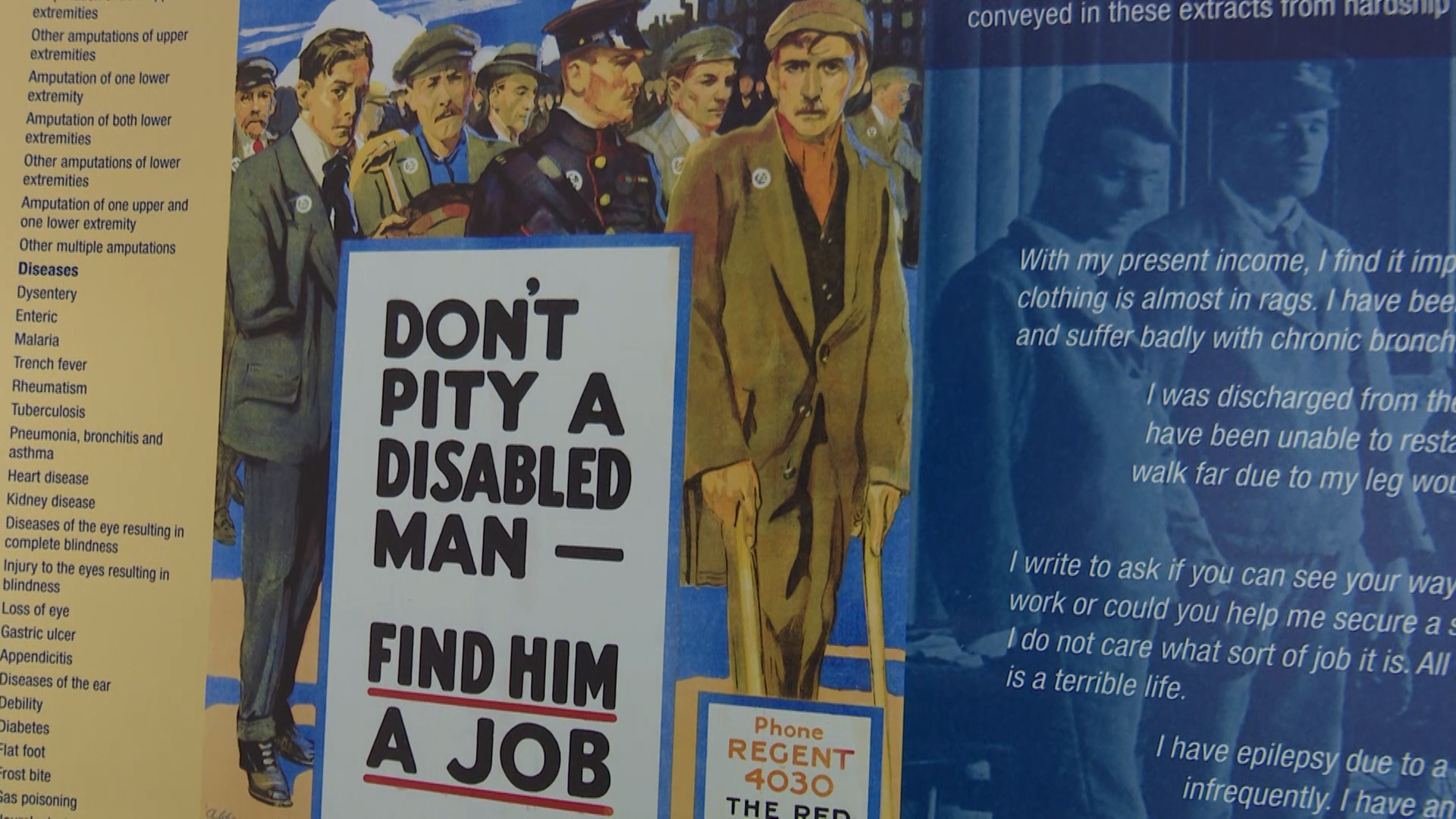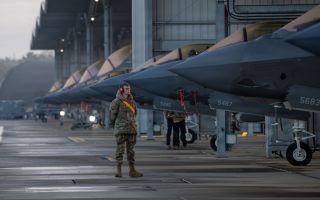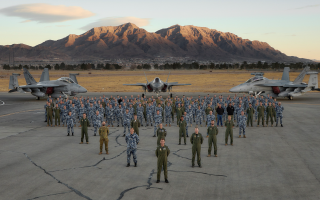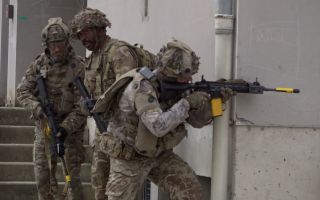
The Troops Whose Hardships Continued After WW1

An exhibition is telling the story of thousands of soldiers who faced terrible poverty after fighting in World War One.
The 'Aftermath' exhibition in Berwick-upon-Tweed has been showcasing how soldiers returning from the battlefield were promised 'a land fit for heroes'.
Instead, they were confronted with years of strikes, high unemployment and hunger marches in the years between the First and Second World Wars.
The exhibit displays examples of the struggles soldiers faced when returning.
Original, handwritten letters from soldiers begging for help from the War Memorial fund underlines their desperation.

Ian Martin, from King's Own Scottish Borderers Musuem, said:
"The War Memorial fund, which was set up by the regimental association, provided relief to veterans who had fallen upon hard times.
"We've got various correspondence from applicants for relief, which are quite moving actually and quite dramatic.
Mr Martin finds one letter especially powerful:
"He went over to France with second battalion and was captured at Le Cateau and spent several years in a prisoner of war camp.
"He managed to escape for which he was awarded a military medal. But after the war, he again fell on hard times.
"He did various jobs, he fought in a boxing booth and then eventually had the idea of publishing his memoirs," said Mr Martin.
After the war, soldiers struggled as veterans looking for employment which was not there.

"A lot of men didn't want handouts. They wanted to work for a living, that's what they were after, a proper job," Mr Martin explained.
Across the exhibition, replica signs have been made, with slogans like "We Want Jobs! Not Handouts!" and "Victim Of War...Marching To Survive", highlighting how soldiers felt.
While examples from this exhibition are nearly 100 years old, World War One historian and founder of Scotland's War, Dr Yvonne McEwan, says some of these problems continue today:
"We still have men and women, who've gone off to conflicts, come home and still have problems with employment, resettlement, with housing.
"The issues that are illustrated in this exhibition, are issues that today's veterans can absolutely identify with."
The exhibition runs until November 11 and will also tour the country after Armistice Day.









